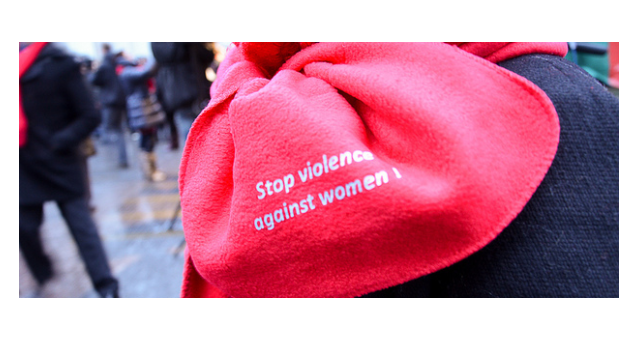Brussels can’t brush sexual harassment under the carpet
#MeToo

[Brussels 25 October 2017] Following the European Parliameny plenary debate today in the wake of the Harvey Weinstein scandal and press allegations regarding incidents in the Parliament itself, Politico Europe published an opinion piece by EWL Secretary General Joanna Maycock. The article has been published by Politico earlier this afternoon. You can read below the full text with the EWL demands.
You can also listen to Joanna on Politico EU’s Confidential Podcast and watch this Euronews item on #metoo. Our President Edith Schratzberger-Vecsei also wrote an opinion piece for an Austrian newspaper Wiener Zeitung (in German).
The outpouring of testimonies following allegations of sexual abuse and harassment against Harvey Weinstein came as a shock to many. To those of us who have spent decades campaigning against sexual harassment, it’s a call to action.
Sexual harassment is not just a problem in Hollywood. It is one of the most pervasive forms of violence against women in the European Union. In most cases, it remains invisible, too often unreported and trivialized.
This is nothing new. A 2014 survey by the Fundamental Rights Agency found that more than half of all women living in the EU have experienced sexual harassment at least once since the age of 15. Incidents of sexual harassment, the study found, are most common among women who are managers or professionals, such as lawyers and doctors.
The ugly truth is that no workplace or public space is entirely free of sexual harassment. Sexism and abuse are structural and widespread — and used as a means to humiliate and subordinate women where they work.
It should come as no surprise that the same holds true for women in the EU institutions. Brussels has introduced policies to tackle sexual harassment, but not enough attention has been paid to making women feel safe enough to come forward and report incidents of abuse.
Women — unfortunately quite rightly — sense that there are no real mechanisms to ensure perpetrators are adequately punished. Worse, they often feel that the consequences of reporting an incident will be worse for the victim than for their aggressor.
Women’s full participation in society and the workforce — not to mention their full participation in the construction of the future of Europe — requires zero tolerance toward violence in every form, including sexual harassment.
If European Commission President Jean-Claude Juncker’s plan to increase the number of women in decision-making positions to 40 percent by 2020 is to be successful, a cultural shift needs to take place in Brussels. Taking action and holding perpetrators accountable shouldn’t merely be an exercise in PR or damage control.
This year was named the “European Year of Focused action to combat Violence against Women,” an event marked by the EU’s signature of the Istanbul Convention on preventing and combating violence against women. The many civil society and women’s organizations that have campaigned for this to happen now expect action.
Women’s full participation in society and the workforce — not to mention their full participation in the construction of the future of Europe — requires zero tolerance toward violence in every form, including sexual harassment.
EU law clearly establishes that sexual harassment constitutes discrimination on the grounds of sex and is therefore prohibited. Its institutions should hold themselves to the highest possible standards when it comes to respecting the laws they themselves put forward.
The European Women’s Lobby fully supports MEPs’ call for an external audit of sexual harassment policies and the infrastructure for dealing with complaints in the European Parliament. All EU institutions, agencies and delegations should be made to carry out similar audits, and they should adopt codes of conduct and action plans to address and prevent sexism, sexist language and inappropriate behavior in the workplace.
No person with a history of violent behavior, including cyberviolence, should have access to decision-making positions within our institutions. There should also be clear guidelines outlawing the use of pornography at work and the buying of sex, for example.
Perpetrators must know that there will be consequences for their actions. The institutions, at the very least, need to create an effective reporting and support infrastructure, as well as create annual reports to keep track of and follow up on cases.
There must also be greater transparency about sexual harassment policies among all staff and stakeholders. Regular training on these policies and best practices should be compulsory for all staff at all levels of the institutions.
Special training should be made available to female staff in order to create safe spaces for reporting instances of abuse and addressing the vulnerabilities of women of minority groups.
The EU should also appoint a European coordinator on ending violence against women and girls, linked to the Commission justice department’s work on gender equality. This person would be directly responsible for addressing problems within the EU institutions in consultation with women’s organizations that support victims of sexual violence.
It’s high time the EU shows it won’t stand for sexist behavior. Women’s voices are too many and too loud to ignore.
Joanna Maycock is secretary-general of European Women’s Lobby.




